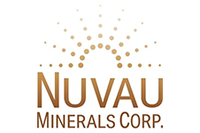Glencore has been stripped of its Bolivian assets, but its continued acquisitions make this loss near irrelevant.
As the world’s largest zinc trader, controlling over 60 percent of the market, Glencore International (LSE:GLEN) is a constant source of zinc market activity.
Following a week of violent conflict that erupted around Glencore’s Colquiri mine, Bolivia’s government announced that it will nationalize the mine to state-owned Comibol, located in La Paz.
The nationalization the of Glencore’s mine came just as the company was finalizing mining contract renegotiations that would have increased the Bolivian government’s share in the company and profits. Glencore’s contract renegotiations offered more than US$160 million of investments in Bolivia over the next five years, at least 35 percent of which was to be directed to the Colquiri project.
This nationalization is not the first orchestrated by Bolivia’s leftist President Evo Morales. Earlier this year, his administration took control of the assets of US natural gas company Pan American Energy and Spanish utility Red Eléctrica de España in a bid to reassert control over Bolivia’s natural resources and basic infrastructure.
Reasons appear mixed
Though it appears that nationalization is an ideological or policy position of the leftist government, it has been explained in a number of contrasting ways. What is certain is that the Bolivian government intends to exert greater control over the local mining industry.
Another certainty is that the nationalization revolves around the conflict between a number of unions representing workers at Glencore’s wholly-owned subsidiary, Sinchi Wayra.
Austin, Texas-based risk analyst Karen Hooper distilled the situation further, commenting in a recent Northern Miner article that “there were two local Indian unions involved and two national level unions involved and it was extraordinarily messy.”
Glencore responded to the situation in a statement, saying that it “strongly protests the action taken by the government of Bolivia and reserves its rights to seek fair compensation pursuant to all available domestic and international remedies.”
While it is not apparent what the outcome of the conflict will be, Glencore’s Bolivian operations are only a drop in the company’s ever-growing zinc bucket.
Glencore’s acquisitions
Glencore continues to expand its zinc market stranglehold. It recently purchased an 80.08 percent stake in Namibian zinc and lead miner Rosh Pinah for an undisclosed sum.
The deal for the underground zinc and lead mine in Southwest Namibia adds 8 million tons of zinc to Glencore’s growing zinc cache, which also includes Peruvian zinc miner Volcan, acquired earlier this year.
However, Glencore’s biggest zinc play, and the largest public mining acquisition this year, is its ongoing bid for Xstrata (LSE:XTA).
The Xstrata deal faced another challenge last week as Qatar Holding, Xstrata’s second-largest shareholder, called for an increase in Glencore’s bid. Its request for a 3.25:1 share swap – up from the initial 2.8 – is a 16 percent increase on the initial offer and comes at a cost during the current downtrodden market for metals and commodities.
Analysts appear to believe that Qatar could receive an increase in the buyout, but is unlikely to get the entire 3.25 ask. The move may also come at a good time for the investing arm; metal and commodity prices are expected to rebound in the latter half of this year and into the middle of the decade as reduced spending on mining infrastructure begins to take traction in markets.
Glencore is guilty of the same optimism, and continues to keep diminishing supplies of key metals like zinc in mind. A number of market participants have accused the company of manipulating the zinc market by squirrelling the metal away in long queues at London Metal Exchange warehouses to support premiums for the metal in the short run.
Some commentators say the move is perfectly legal and will consolidate Glencore’s growing control of the zinc market.
Securities Disclosure: I, James Wellstead hold no investment interest in any company mentioned in this article.
